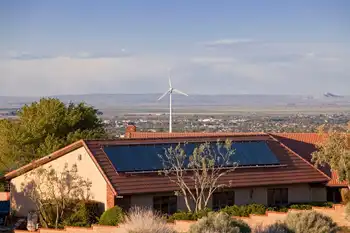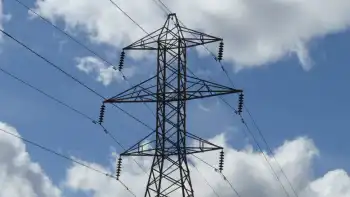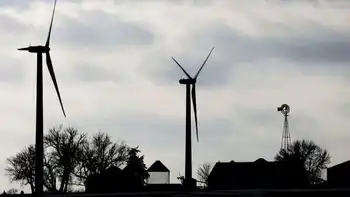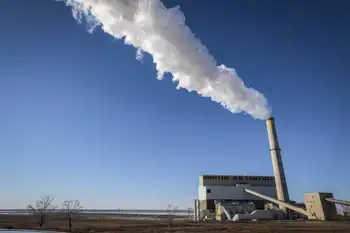Soft economy may hurt utilitiesÂ’ bonds
Cash-strapped consumers mean utilities will recoup less of their investment in new power plants, leaving some companies struggling to repay debt and detracting from their credit quality, analysts warn.
Bond investors traditionally view utilities as a safe bet for steady income because many act as monopolies and have local businesses and households in a vise.
Yet in their broad scramble for yield, investors may have overlooked the emerging risks to some electrical utilities' balance sheets, fund managers say.
"The soft economy and additional burden on them utilities from environmental regulation is a big headwind," said Lawrence Glazer, managing partner of Mayflower Advisors in Boston.
"I don't think investors have discounted the environmental costs," Glazer added.
Under pressure from federal and state policy makers, much of U.S. electrical utilities' $1 trillion infrastructure will have to be revamped or replaced to make it more efficient and less carbon intensive, according to a report by Moody's Investors Service.
"The broad utility universe is exposed because so much of the generation fleet is coal," with the average age of U.S. coal-fired power plants is about 30 years, said the report's author, analyst Jim Hempstead.
The Environmental Protection Agency recently issued a new Clean Air Transport Rule, which is viewed as more stringent, Moody's said.
In early 2011, the EPA is also expected to issue new regulations about hazardous air pollutants, mostly coming from coal-fired electric power facilities, the rating agency said.
"Should retail consumers eventually reach their inflection point where they will no longer tolerate electric rate increases, their vocal objections and complaints could pressure politicians, and ultimately regulators, to intervene in some fashion," Hempstead wrote in a report last month.
"The likely scenario would be a reduction in the level of costs and investments utilities recover through rates, or a more contentious relationship with the regulators. Both would be a material credit negative," Hempstead wrote.
For example, South Carolina Electric & Gas, which plans to build new nuclear power facilities, may have difficulty raising its rates to offset the costs, Hempstead said. Because there is high unemployment in South Carolina, "the concern we have is when will this company get to a point where rates will be a burden for consumers so that consumers will object?" Hempstead said.
Moody's rates the company Baa1, in the lower echelons of investment grade.
For now, investors appear to be confident of South Carolina Electric & Gas's bonds. On Thursday, its 5.300 percent notes due in 2033 were trading at a spread of 106 basis points, about the middle of its range over the last year. Its price of 103.99 cents on the dollar was well above par.
However, "in the long run, do investors look back and say this is an incredibly interest-rate sensitive sector," and ask whether the utilities took on huge capital projects at an ill -advised moment, said Glazer.
Power utilities typically have very high levels of debt, which they issue to finance major long-term capital investments, making them highly sensitive to interest rates.
Right now, historically low rates in the corporate bond market make it a seemingly opportune moment for these companies to borrow. But with so many manufacturing companies operating at a low ebb and with unemployment high, utilities' income, and ability to make bond payments, may dwindle, bond strategists worry.
"Industrial demand is clearly a credit focus when looking at the utilities," said Jason Mandel, a desk analyst focusing on power, energy and project finance at Chapdelaine Credit Partners, a fixed income brokerage in New York.
"The weaker economy matters," Mandel said. Soft industrial demand "ultimately is a major driver of power prices," and is a focus of investors, he said.
"Those utilities that are seeking to make investments in new nuclear generation are experiencing credit rating and spread pressure because of the significant cost, long lead times and potential cost overruns," Mandel said.
Related News

DBRS Confirms Ontario Power Generation Inc. at A (low)/R-1 (low), Stable Trends
TORONTO - DBRS Limited (DBRS) confirmed the Issuer Rating and the Unsecured Debt rating of Ontario Power Generation Inc. (OPG or the Company) at A (low) and the Commercial Paper (CP) rating at R-1 (low).
All trends are Stable. The ratings of OPG continue to be supported by (1) the reasonable regulatory regime in place for the Company's regulated generation facilities, (2) strong cash flow-to-debt and debt-to-capital ratios and (3) continuing financial support from its shareholder, the Province of Ontario (the Province; rated AA (low) with a Stable trend by DBRS). The Province, through its agent, the Ontario Electricity Financial Corporation…





